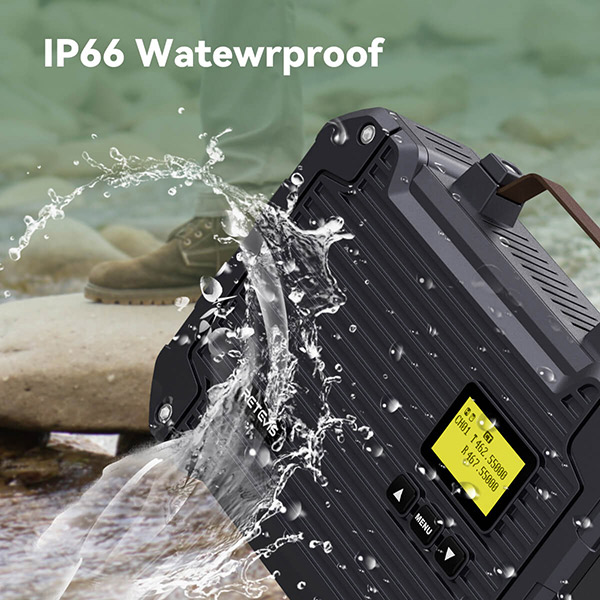Create GMRS Repeater Coverage Maps for Maximum Reach

Create GMRS Repeater Coverage Maps for Maximum Reach
Why Mapping Your GMRS Repeater Coverage Matters
Understanding your GMRS repeater's coverage area is essential for:
-
Planning outdoor adventures with reliable communication
-
Organizing community emergency response networks
-
Optimizing business operations across multiple locations
-
Ensuring family stays connected in rural areas
Step-by-Step Guide to Creating Coverage Maps
1. Gather Your Equipment
You'll need:
-
Your GMRS radio (we recommend models compatible with the RT97L repeater)
-
GPS device or smartphone with mapping apps
-
Notebook for recording signal strength observations
The RT97L Advantage for Consistent Coverage
When creating coverage maps, the RT97L repeater offers distinct benefits:
-
25W Power Output: Provides stronger signal penetration through obstacles
-
IP66 Waterproof Rating: Allows for permanent outdoor installation in various weather conditions
-
Uniform Signal Distribution: The included antenna provides balanced coverage in all directions
-
Compact Design: Easy to mount at optimal heights for maximum coverage

- RT97L IP66
Factors Affecting Your Coverage Map
Consider these variables when mapping:
-
Terrain: Hills and valleys significantly impact range
-
Antenna Height: Every additional foot improves coverage
-
Urban Density: Buildings absorb and reflect signals differently
-
Vegetation: Seasonal foliage changes affect signal penetration
-
Weather Conditions: Rain and humidity can alter propagation
Creating Your Digital Coverage Map
Convert your field data into a visual map:
-
Input your waypoints into mapping software
-
Overlay terrain data
-
Mark zones of strong/weak reception
-
Identify potential "dead zones"
-
Highlight optimal communication routes
Practical Applications of Your Coverage Map
Use your completed map to:
-
Plan group activities within reliable coverage
-
Identify locations needing additional repeaters
-
Document emergency communication capabilities
-
Share with family/team members for coordinated use
Maintaining and Updating Your Maps
Regularly update your coverage maps when:
-
You change antenna configurations
-
New construction alters local terrain
-
Seasons significantly change foliage
-
You upgrade equipment (like adding another RT97L)
Conclusion: Better Maps Mean Better Communication
Creating accurate GMRS repeater coverage maps with tools like the RT97L ensures you get the most from your 25W investment. The IP66-rated durable construction means your mapping remains valid through all weather conditions, while the uniform signal distribution provides predictable coverage patterns.






